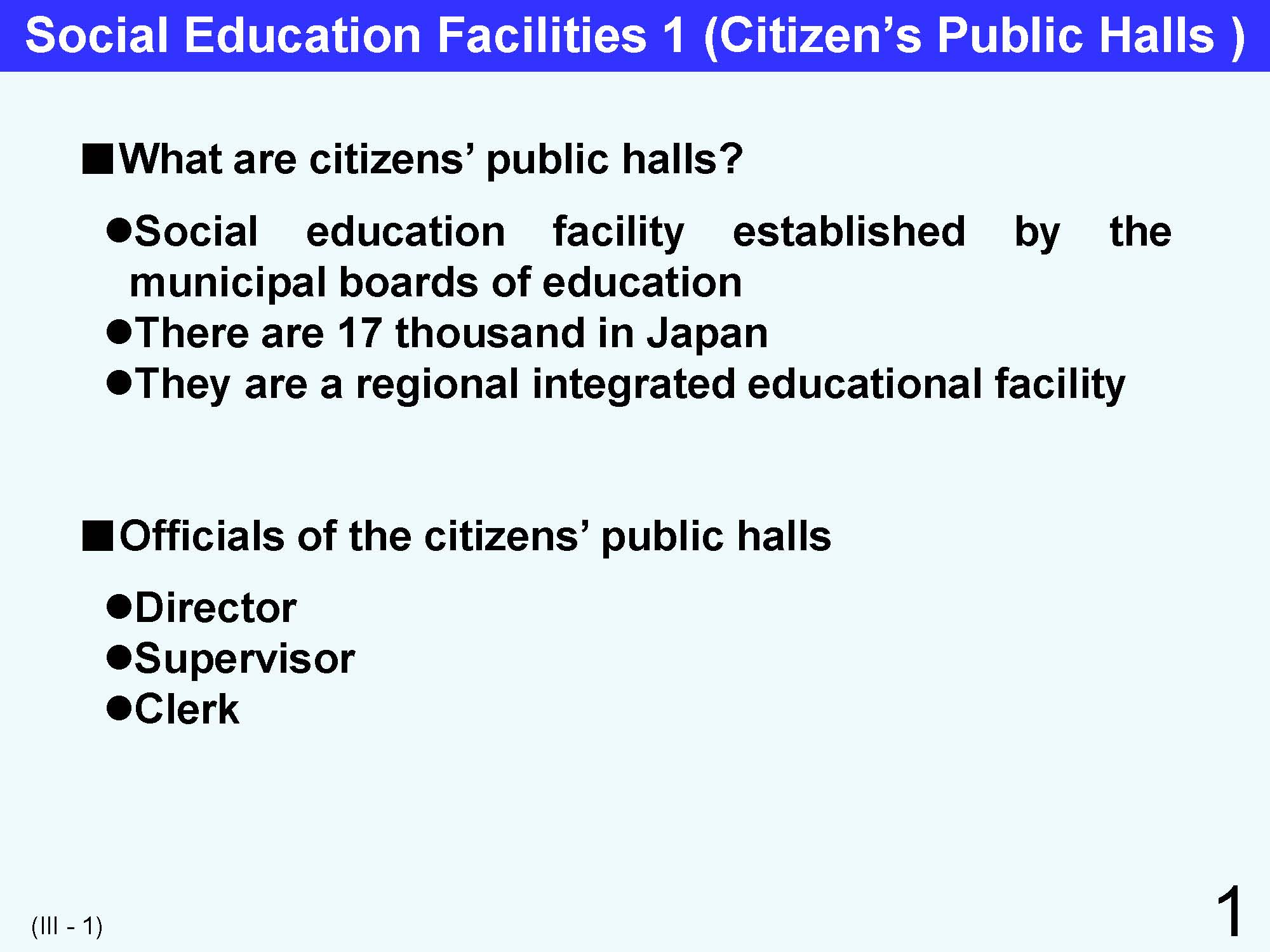| 1 | gIII Japanese Social Educationh | Previous | Next | JAPANESE |
|---|---|---|---|---|
 |
||||
| The citizensf public halls (Kominkan) are an original social education facility in Japan. They were promoted in Japan through the eEstablishment and Administration of citizensf public halls e, that was based on a notice from a subordinate officer of the Ministry of Education in 1946. As the Social Education Law was enacted in 1949, citizensf public halls (Kominkan) were registered as a social education facility established by municipalities.
At present, there are about 18,000 citizensf public halls in Japan (Kominkan) whose form, scale and equipment are different. From the viewpoint of functions of citizensf public halls, however, there are similarities. These halls function as a local comprehensive educational and cultural facility, and as a center for meeting, learning and social interactions for citizens. Full-time or part-time curators and citizensf public hall officers are assigned to each citizensf public hall (Kominkan). Social Education Officers qualify as citizensf public hall (Kominkan) officers in some municipalities. There are also some citizensf public halls to which clerks and part-time Social Education Leaders are assigned. |
||||
Please send your comments and concerns here
kamada@criced.tsukuba.ac.jp
Center for Research on International Cooperation in Educational Development(CRICED) University of Tsukuba
1-1-1, Tennodai, Tsukuba-shi, IBARAKI
305-857, JAPAN